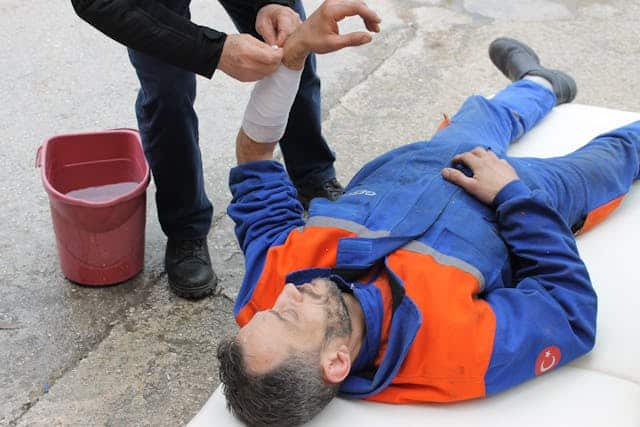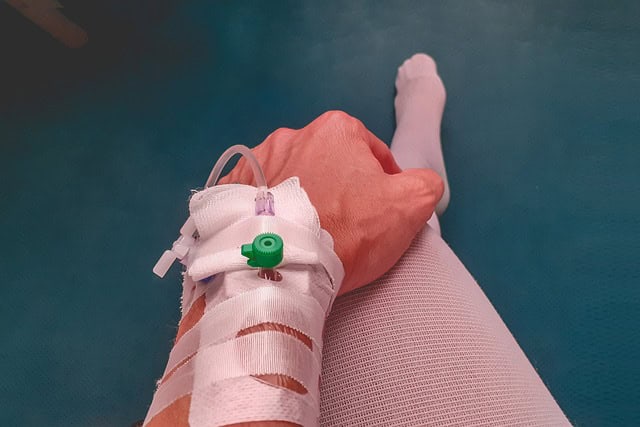
Slip and fall accidents can happen unexpectedly, and their consequences can be severe. Whether at a store, in a workplace, or on someone’s property, a sudden fall can lead to painful injuries and expensive medical bills. Knowing what steps to take immediately following an accident is essential to safeguard both your health and your legal rights. Here’s a comprehensive guide on what to do if you’re injured in a slip and fall accident.
Seek Immediate Medical Attention
Your health should be the top priority after a slip and fall accident. Even if your injuries seem minor initially, some issues, like internal injuries or concussions, may not be immediately apparent. Seeking prompt medical care ensures any injuries are documented, which can be critical if you decide to pursue a legal case. Doctors’ records can verify your injuries and provide evidence that can be used if you need to prove the accident’s impact on your health.
Be sure to follow all medical advice and attend any follow-up appointments. Failing to do so can harm your recovery and weaken a potential legal claim by giving the impression that your injuries were not severe. Prioritizing medical attention shows you are taking your injuries seriously, which can be vital if you later need to prove damages in a legal claim.
Document the Accident Scene
Once you’ve addressed immediate medical needs, documenting the scene is crucial. Evidence at the location of the fall can quickly change as the property owner or others may clean or alter the area. If possible, take photos or videos of the exact location where you fell, noting any hazards like wet floors, poor lighting, or broken flooring that may have contributed to the accident.
If there were witnesses to the fall, ask for their contact information. Statements from those who saw the accident can be highly valuable in establishing what happened. Remember to record the time and date of the accident, as well as details of the surrounding environment. This information can provide a clearer picture of the conditions that led to your injury, which is essential for both medical and legal records.
Report the Accident to the Property Owner or Manager
It’s essential to report your accident to the property owner or a responsible authority, such as a store manager, immediately after the fall. Reporting the incident ensures there is a formal record of what occurred. Many businesses have specific procedures for dealing with accidents, and they may ask you to complete an incident report form.
When filling out an incident report, stick to the facts and avoid admitting fault or minimizing your injuries. Descriptions should be straightforward and detail the conditions of the accident. This report can serve as valuable evidence if you decide to pursue legal action. Once the report is filed, ask for a copy for your own records.
Consult a Slip and Fall Lawyer
A slip and fall lawyer can provide invaluable guidance after an accident, especially if your injuries are severe and you’re considering legal action. They can help you understand your rights, assess the strength of your case, and navigate the often-complex process of filing a claim. In cases where negligence may be involved, a lawyer will investigate thoroughly to establish liability. If you plan to file a claim against the property owner, a lawyer can help gather evidence, speak to witnesses, and obtain expert testimony if necessary. They will handle communications with insurance companies, ensuring your interests are protected and reducing the chances of an inadequate settlement. Working with an experienced lawyer can increase your chances of receiving fair compensation to cover medical expenses, lost wages, and other damages related to the fall.
Preserve Evidence Related to Your Injury and Recovery
Evidence is crucial in any slip and fall case. Aside from photos and witness statements, it’s essential to keep all documents related to your injuries. This includes medical bills, prescription records, and notes from your doctor regarding your physical limitations. If your injuries prevent you from working, keep a record of any missed work and lost income. These details help establish the financial impact of your injuries.
Additionally, consider keeping a daily journal documenting your recovery process. Note any pain, limitations in your daily life, or emotional distress related to the accident. Personal accounts can provide a deeper understanding of how the injury has affected you beyond physical damage, potentially increasing the compensation you may be entitled to in a legal claim.

Understand the Statute of Limitations for Filing a Claim
Time is of the essence when it comes to legal action following a slip and fall. Each state has a statute of limitations, which is the timeframe within which you must file a claim. If you fail to initiate a lawsuit within this period, you may lose your right to pursue compensation. Consulting with a lawyer soon after the accident can help you stay informed about the deadlines and ensure you meet all legal requirements.
A lawyer can also help you understand any specific regulations related to your case. For example, claims involving government properties or employees often have shorter deadlines or additional procedural steps. Being aware of these timelines from the beginning can prevent potential complications down the line.
Prepare for Potential Settlement Negotiations
Most slip and fall cases are settled before they reach court. Once you have a lawyer and evidence, you’ll likely enter settlement negotiations with the property owner’s insurance company. Your lawyer will work to secure a fair settlement, but it’s important to know that insurance companies often attempt to minimize payouts.
During negotiations, having complete medical records and documentation of your losses can strengthen your position. Be prepared to reject initial offers if they don’t adequately cover your expenses or compensate for pain and suffering. A fair settlement should address all of the damages you’ve incurred due to the accident, including future medical expenses if applicable.
Taking the right steps after a slip and fall accident can significantly impact your recovery and any legal claim you pursue. Prioritizing your health, documenting the accident, consulting a lawyer, and gathering evidence are all essential actions that help protect your well-being and rights.



